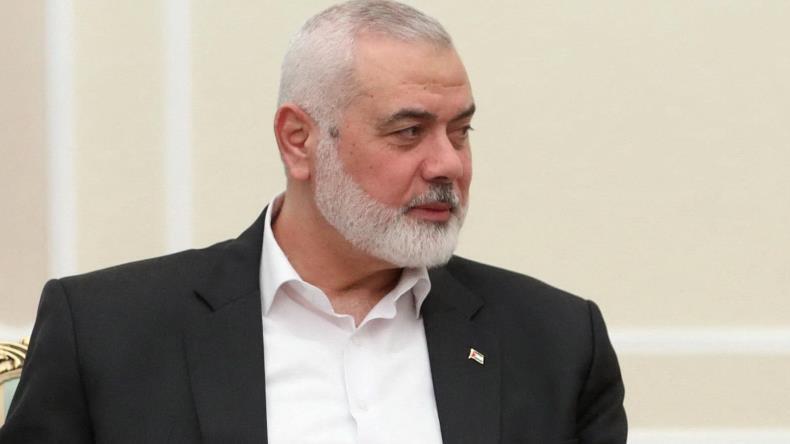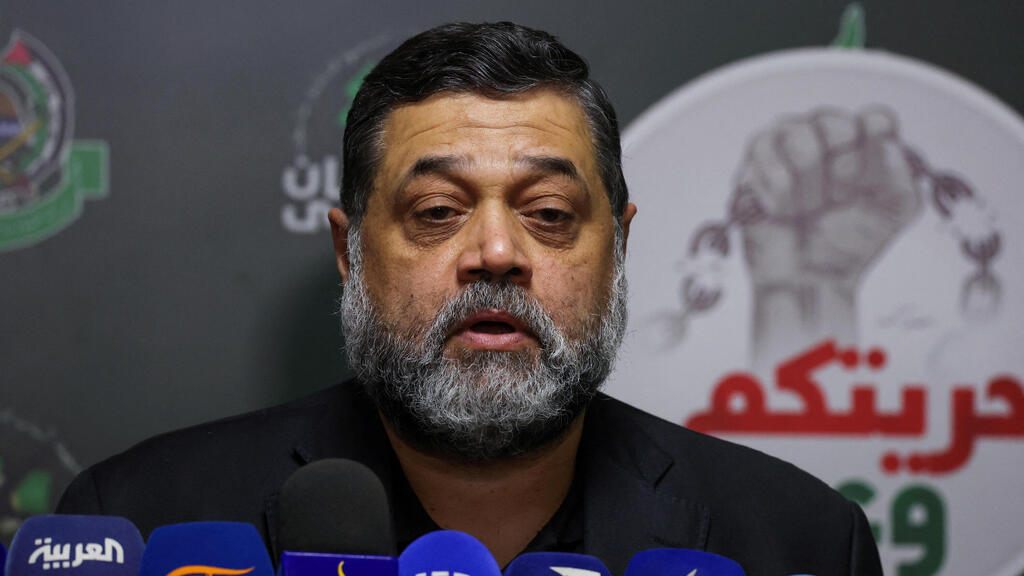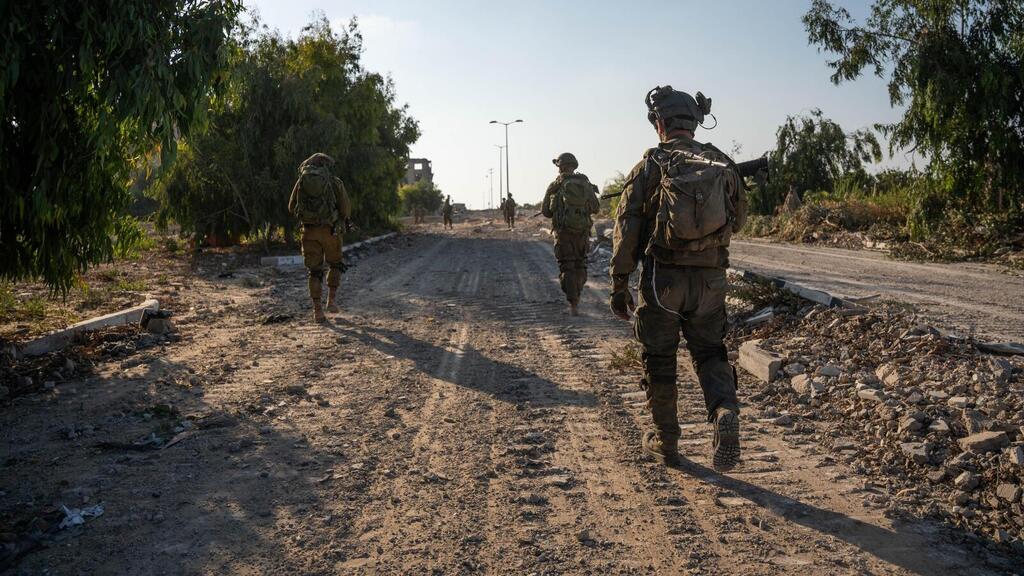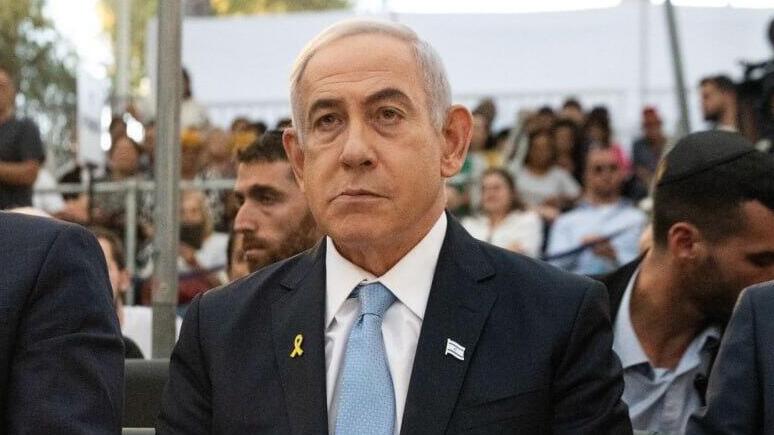Getting your Trinity Audio player ready...
The Hamas’ statement made on Sunday saying it won’t attend talks on a hostage release and cease-fire deal later this week shouldn’t surprise anyone. In Israel, at least, no showed major concerns.
Hamas' statement was expected for several reasons: First, it’s part of a tactic aimed at gaining leverage in negotiations. "This [holding negotiations] requires nerves of steel," members of the Israeli negotiation team said on Sunday, stressing there will likely be many more fake news and psychological warfare attempts by the terror group. In fact, it’s likely we’ll see more conflicting announcements, alongside pressure from mediators to hold the summit regardless by Thursday.
5 View gallery
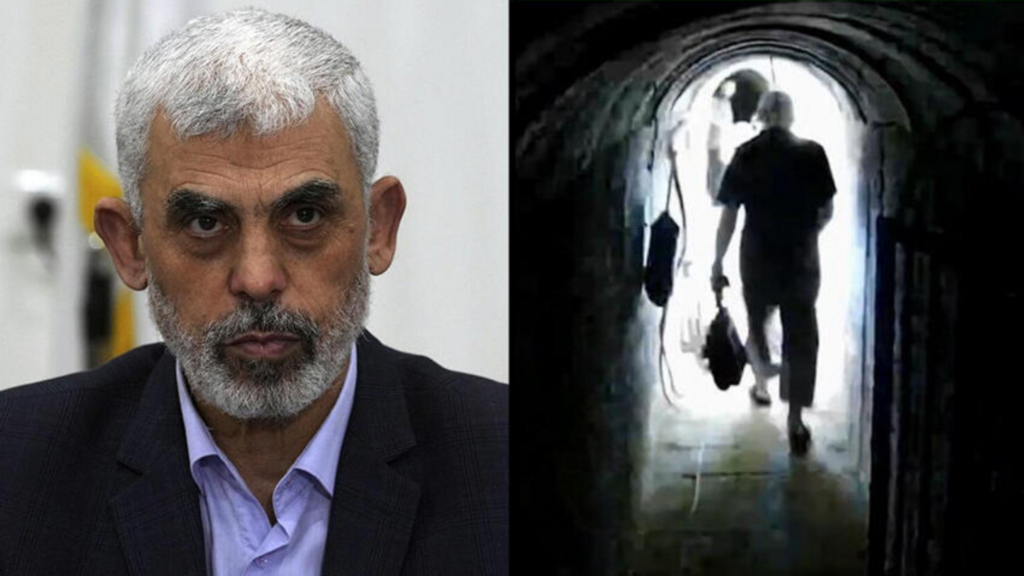

Hamas leader Yahya Sinwar, Siwar escaping IDF via tunnel
(Photo: AP, IDF Spokesperson's Unit)
However, beyond the psychological warfare aspect, it’s hard to ignore the timing of Hamas’ announcement – shortly after reports in Israel saying Iran and Hezbollah are determined to launch attacks in the coming days, possibly a direct or even a coordinated strike. Sinwar, as is well known, sees the current tension as an opportunity to unite fronts – a dream he has had since the beginning of the war.
Over the past 10 months, Hamas leader Yahya Sinwar has repeatedly tried to ignite the region, including the West Bank, and has failed each time.
Therefore, Ismail Haniyeh’s assassination in Tehran and the assassination of Fuad Shukr in Beirut has created a rare opportunity for him, since Iran and Hezbollah's revenge will almost certainly provoke a strong Israeli response, which could drag the region into a multi-front war. U.S. President Joe Biden even mentioned this in an interview with CBS, saying that a regional war “easily can” break out.
The biggest beneficiary of such a comprehensive war is Sinwar. Israel would be deeply engaged with Hezbollah and Iran and its proxies, requiring additional forces to be deployed to the northern front. This would likely ease the pressure on Hamas in the Gaza Strip.
Some in Israel estimate Hamas' announcement is also partly a façade. Sinwar wants to show solidarity with Hezbollah and Iran, not as someone negotiating with Israel during the offensive. It’s a transparent move, but the main question is still what will happen on Thursday and whether Hamas will eventually show up at the talks.
If the terror organization sticks to its position, while Israel does attend to the summit – whose location is still unclear, Doha or Cairo – Hamas will be blamed for derailing the deal. We’ve seen Hamas has been keen not to be perceived as intransigent in the past, so nothing has been concluded yet. There are still three days until the summit, which is plenty of time for things to change. Israel believes Hamas will ultimately indeed attend. Time will tell.
What is Hamas' position?
On Sunday, Hamas announced it decided not to send representatives to the summit, claiming that further rounds of negotiations only prolong the war and give Israel legitimacy. "We call on the mediators to present a plan to implement what was agreed upon on July 2, instead of holding new negotiations. Entering into further rounds of talks or proposing new offers will only provide cover for the occupation’s aggression and give it time to win the war of annihilation," Hamas said in a statement.
Senior Hamas official Osama Hamdan told Hezbollah's Al-Manar channel: "There are ideas that the mediators presented, and we accepted them and are ready to implement them immediately. It’s unacceptable to give the enemy more time. Our position is clear, and we’re not waiting for a discussion on new frameworks."
Hamdan added: "There is a framework present that we’ve agreed upon, and we’re waiting for the announcement of implementation mechanisms that include stopping the war, Israel's withdrawal from Gaza, providing additional aid, and beginning reconstruction.
“The Israelis want to avoid the obligation of a cease-fire, and there’s a wrong assessment in Israel that the resistance is in a weak position. The reality on the ground confirms that it’s fighting just as it did in the early days," he also said.
What is Israel's position?
The Israeli negotiation team isn’t overly concerned about Hamas' announcement, understanding it as part of a tactic to gain leverage and that psychological warfare will continue until the summit is held.
Prior to this, Israeli officials said they were working around the clock to close all gaps in the talks – such as issues regarding the Philadelphi Corridor, the Rafah crossing, troop movements, and the cease-fire – and arrive on Thursday with the possibility of closing a deal within a few days.
Before Hamas' announcement, Israel estimated this was a rare opportunity to reach an agreement, considering this a critical window of time that could result in a favorable outcome for all parties involved. The mediators are highly motivated to seal an agreement, and both sides have a possibility to seize the momentum, which could lead to a cease-fire and the release of hostages. If this opportunity is missed, it will likely close the door for any agreement within a realistic time frame.
"This is the one and last chance – and it’s now," a senior security official in the past before Hamas' statement. "An agreement can be reached. This is our last opportunity to bring back the hostages alive."
What did the mediators say?
Hamas' statement was nonetheless surprising, especially considering that an earlier CNN report, based on an Israeli source familiar with the details, said Egypt and Qatar had recently delivered a message to Israel saying Sinwar is interested in a cease-fire. The report noted that Prime Minister Benjamin Netanyahu's position remains unclear.
The gaps in reaching a deal
Israel insists on receiving a list of 33 hostages who will be released. In responses sent by Hamas, they requested Israel relinquish its veto to give the terror group concessions in deciding which Palestinian prisoners will be released from Israeli prisons.
On the other hand, Israel delivered messages to Hamas, saying it would insist on receiving a predetermined list of hostages to be released.
This clarification is critical, and progress can’t be made without it. It’s also impossible to reach a hostage deal without resolving the issues related to the Philadelphi Corridor and Rafah, just as it’s impossible to move forward without having the names of hostages.
The goal is to find solutions to the pressing issues to arrive at the summit in an optimal starting position, ensuring the discussions are effective and can lead to the deal taking effect within a few days.
What will Netanyahu do?
Ynet and Yedioth Ahronoth analyst Nadav Eyal wrote on Sunday that two senior government officials close to Netanyahu said he understands his government could fall apart because of the deal — and has decided he is prepared for this.
This will also benefit him politically: the deal will return some of the Israeli hostages but will leave the possibility of renewing the war. Eyal added that Israel is willing to make some concessions, mainly in the monitoring of the movement of armed terrorists to the northern Gaza Strip. Netanyahu has set this as a condition, but the current proposed clauses are vague and don’t detail a mechanism to achieve this.
However, CNN quoted an Israeli source who said: "Nobody knows what Bibi [Netanyahu’s nickname] wants." It was also noted Netanyahu is facing heavy pressure from the United States to agree to the deal, with American officials making it clear to their Israeli counterparts that they believe it’s time for an agreement in order to prevent a regional war.




